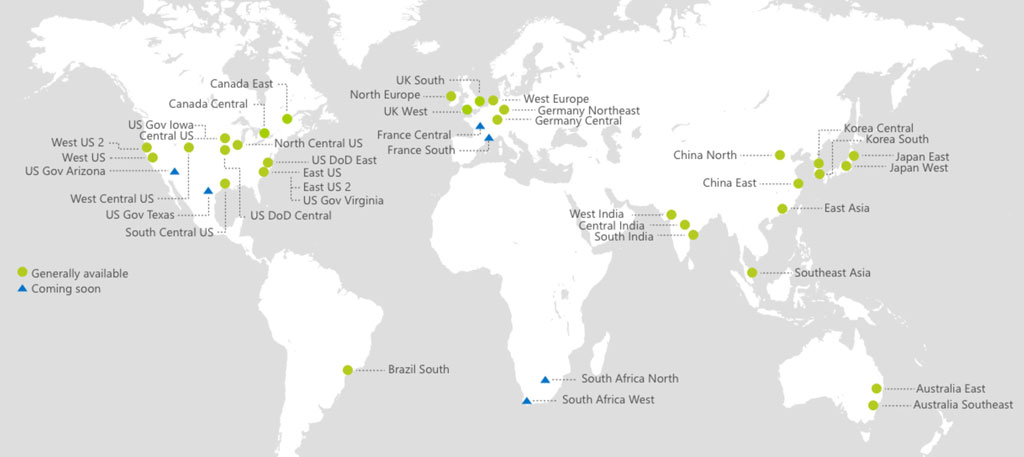
The Microsoft Cloud is coming to South Africa in the form of two new data centres, to be built in Cape Town and Johannesburg, the US-based software giant announced at press conference in Johannesburg on Thursday.
“We are announcing for the first time that the Microsoft Cloud will be delivered directly from Africa with data centres in Johannesburg and Cape Town, with initial availability of our cloud technologies in 2018,” said Julia White, corporate vice-president for Azure and Security at Microsoft.
The first cloud technologies to be made available to local businesses and consumers through the local data centres are Azure, Office 365 and Dynamics 365.
Microsoft did not say where it is building the data centres. It has also not disclosed the level of investment it is making.
The plan to open the two data centres now means that Microsoft will have 40 Azure regions around the world. White said Microsoft’s geographic reach is at least twice the size of its next cloud competitor.
She said it makes sense to invest in infrastructure in Africa given the “incredible innovation and growth” taking place on the continent. The local data centres will offer “enterprise-grade reliability and performance and local data residency, which is very important for African companies”. The facilities “will improve services from Cairo to Cape Town”, she said.
Microsoft said it’s still working on pricing models.
In reaction to the news of the investment, Jon Tullett, research manager for IT services at International Data Corp in Africa, said it is a “significant announcement”, especially given that none of the top-tier cloud providers has traditionally had a data centre footprint in Africa.
“It, therefore, gives Microsoft a significant advantage on the African continent,” Tullett said. “In the past, there have been a lot of questions around these providers’ commitment to the region because of their lack of data centre infrastructure on the continent.”
A year ago, IBM started to deploy infrastructure in South Africa, which was “a step in the right direction”, he said. “But this is another level. This is Microsoft showing that they are all in, with multiple data centres, full redundancy and the full stack of services available. Microsoft is sending a very strong message about the company’s commitment to the local market.”

Tullett said the move will help address the issue of data sovereignty. “There are a lot of concerns around data governance and moving sensitive data offshore, and this will obviously resolve that issue immediately.”
He said the South African market is already seeing an uptick in the adoption for software-as-a-service and platform-as-a-service cloud technologies, driven by the downturn in the economy and increasing pressure to move from capital expenditure to operational expenditure models. The Microsoft announcement is likely to accelerate that trend. “There has also been deferred project spend because of the ongoing economic conditions and this removes another barrier to unlocking some of that spend.”
Tullett said the data centres will not be built from scratch, but will rather be collocated at existing facilities. “This model is not unique to what they are doing in South Africa and it minimises their risk in terms of infrastructure investment. At Microsoft’s request, we are not disclosing who the collocation partner is at this stage.”
The investment is significant, but is unlikely to lead to large-scale job creation. “It takes relatively few people to run a hyperscale data centre,” he said. “These cloud providers have invested heavily in automation technologies to keep their cost of deploying into a new region as low as possible, so you are not going to see Microsoft hiring tons of cloud engineers in South Africa. They will, however, be sourcing most of the equipment locally.”
Tullett said he expects some services to go live with early adopters in the first half of next year. — (c) 2017 NewsCentral Media




